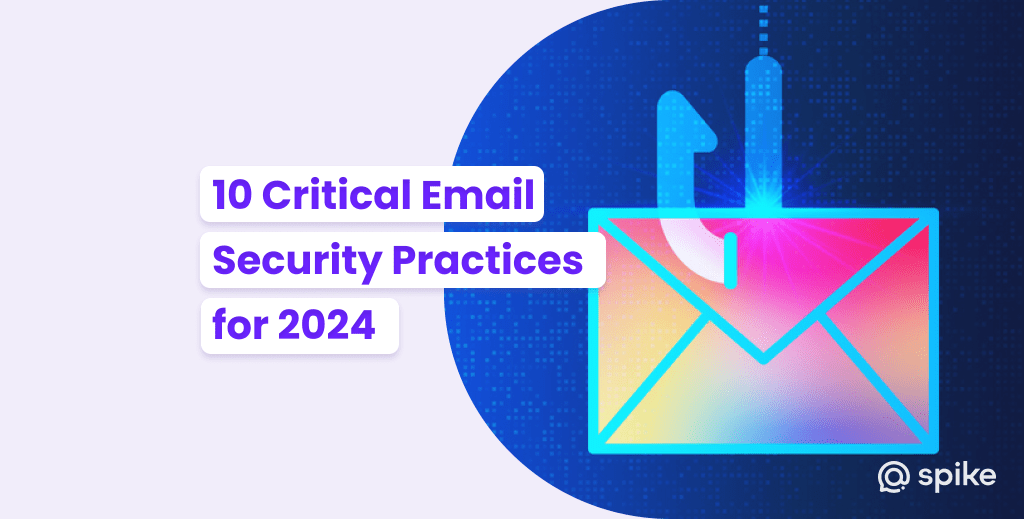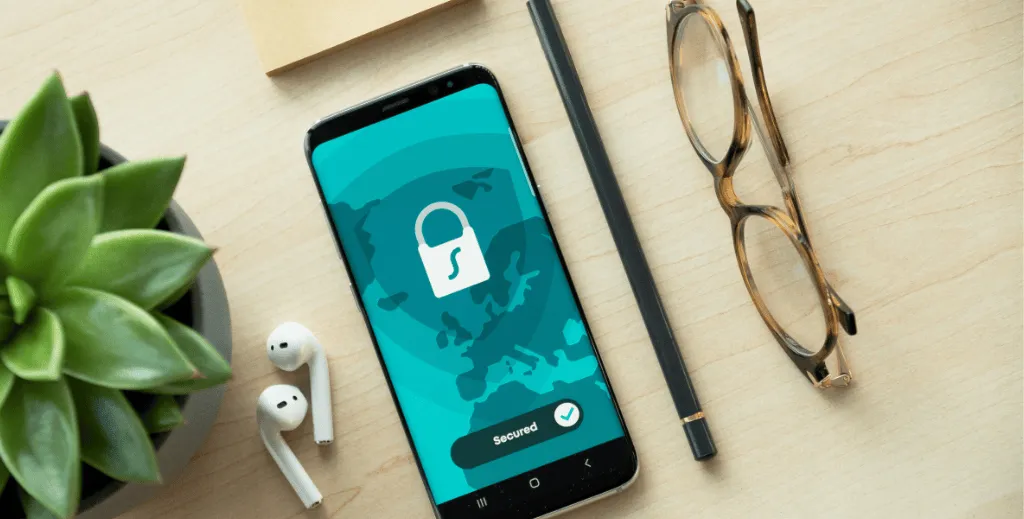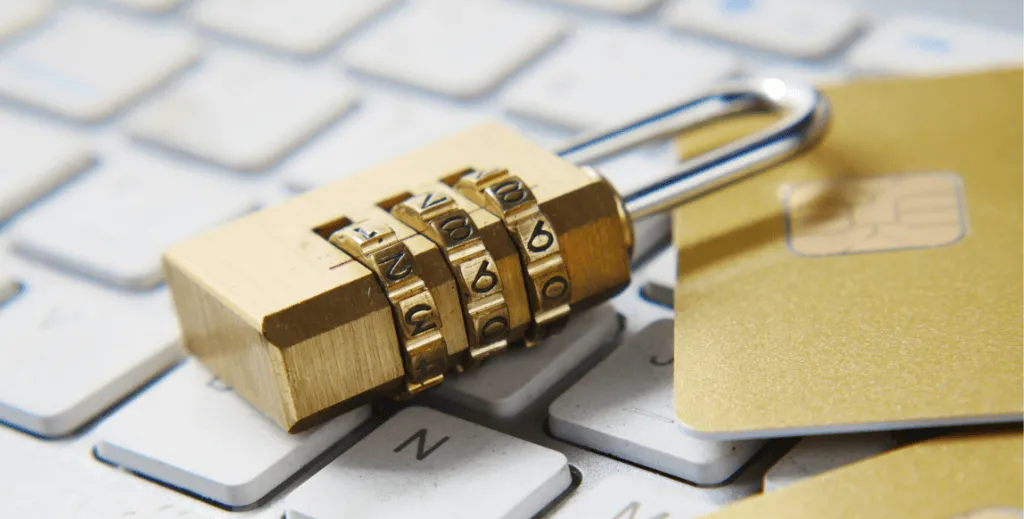10 Critical Email Security Best Practices for 2024

Email is a single gateway to our personal and work lives. It is a prime target for cybercriminals looking for information about our finances and other private details. This article outlines the ten most critical email security best practices for 2024.
These practices are not just recommendations. They are necessary for everyone, from CTOs to stay-at-home moms. They ensure the safety of sensitive information from unauthorized access and cyber-attacks.
What is email security?
Email security is the practice of protecting email from cyber security threats. It includes measures to protect email from critical threats, such as data breaches, phishing, malware, and other risks.
Robust security measures aren’t built-in to most email protocols and clients. Despite, its importance as a communication tool. Consequently, emails that typically contain sensitive and personal information are a prime attack vector with unique vulnerabilities.
Why You Should Care About Email Security

Email security is more than just a precaution; it’s a necessary defense against the multitude of cyber threats that users face daily.
The Threat of Being Hacked (Account Takeover)
Account takeover, where unauthorized users gain access to email accounts, can lead to identity theft, financial loss, and unauthorized access to sensitive information. A 20204 survey noted that 58% of cybersecurity professionals suffered from account takeover attacks.
The Danger of Malicious Spam
Malicious spam refers to unsolicited emails that can carry malware or fraudulent content, tricking recipients into actions that compromise security. Google blocks around 100 million phishing emails daily for those using Gmail and Google Workspace
Malware Delivery Through Email
Emails are a common vector for delivering malware, which can infect systems to steal data, monitor user actions, or gain control over devices.
Conversation Hijacking
Cyber attackers can intercept or take over email conversations to insert malicious links or misinformation, often leading to financial or data loss.
The Risk of Business Email Compromise
Business Email Compromise (BEC) scams target companies with emails that mimic legitimate requests (i.e., CEO wanting you to send them a gift card, etc.), often resulting in significant financial transfers to attacker-controlled accounts.
Phishing Scams
Phishing scams, where attackers masquerade as trustworthy entities to solicit personal information, are alarmingly effective and prevalent.
Phishing attempts have dramatically increased in recent years, resulting in numerous high-profile data breaches.
By understanding these risks and implementing strategic defenses, individuals and organizations can significantly reduce their vulnerability to these prevalent and damaging cyber threat
10 Critical Email Security Best Practices

By understanding and implementing these ten essential email security best practices, you can significantly enhance the protection of your most critical data.
1. Use Strong Passwords
Creating strong, unique passwords for each account is essential. A strong password has upper and lower-case letters, numbers, and symbols. Ideally, it should be changed often to stop unauthorized access.
This limits the ability of cybercriminals to use password-cracking techniques to find your login credentials.
2. Utilize 2FA/MFA
Two-factor or multi-factor authentication provides an additional security layer. It requires the user to provide a second form of verification beyond just the password. Typically, this is a code sent to your phone or biometric verification. This method significantly reduces the risk of account breaches.
3. Choose a Secure Email Client
Selecting an email client with a strong focus on security, such as Spike, can enhance your protection. Spike offers advanced security features designed to safeguard your communication and personal information.
4. Train Employees to Detect Phishing Emails
Cybersecurity awareness training and certifications provides employees with information about the various ways cyberattacks can occur, as well as how to protect themselves, their devices, and their data. Conduct regular training sessions to educate employees about the dangers of phishing emails. Teach them to scrutinize email addresses, check for suspicious links, and verify the authenticity of requests through direct communication channels.
5. Scan All Email Attachments Before Downloading
Use antivirus software to scan email attachments, before downloading. This ensures that any malicious malware is detected before it can harm your device.
6. Verify Email Links
Always check the URL of a link by hovering over it before clicking. This precaution can prevent falling victim to URL spoofing. This is a common cyber threat that tricks users into clicking on a supposedly ‘safe’ link. But, are instead directed to a malicious website.
7. Keep Your Personal and Business Emails Separate
Keeping your personal and business emails separate minimizes the risk of cross-contamination. Spike’s Unified Inbox feature is an excellent tool for managing multiple accounts efficiently, ensuring that personal and professional communications do not overlap.
8. Avoid Using Public Wi-Fi for Email
Public Wi-Fi networks are notoriously insecure. Avoid accessing your email on these networks to prevent cyber criminals from intercepting your information. Use a VPN for a secure connection if necessary.
9. Regularly Update Security Software
Keep your security software, including antivirus and data backup solutions, such as backup for Office 365 and email clients, up to date to protect against the latest threats.
10. Implement Email Encryption
Email encryption ensures that the intended recipient can only read your messages. This is crucial for sending sensitive information securely and protecting against interception.
By adhering to these ten critical email security best practices, you can significantly enhance your defenses against the sophisticated cyber threats of 2024.
Wrap up on email security
What’s the TL;DR on email security? From using strong passwords and enabling 2FA/MFA to training on phishing detection and employing secure email clients like Spike, each practice plays an important role in protecting your email communications. By staying focused and implementing these important measures, you can significantly enhance your email security, ensuring your sensitive information remains confidential and secure.
FAQ
Email security involves protecting email logins/accounts and communications from unauthorized access and threats from hackers. It’s for safeguarding sensitive information against cyberattacks, such as phishing and malware, which can lead to data breaches and financial loss.
Improving email security can be achieved by using strong, unique passwords, enabling two-factor authentication (2FA), being cautious with email attachments and links, using secure email clients, and educating yourself and others on phishing scams and other cyber threats.
Phishing is a cyberattack where the attacker pretends to be a trusted entity to trick individuals into providing sensitive information. Protection against phishing includes being skeptical of emails asking for personal information, verifying the authenticity of messages, and not clicking on suspicious links or attachments.




